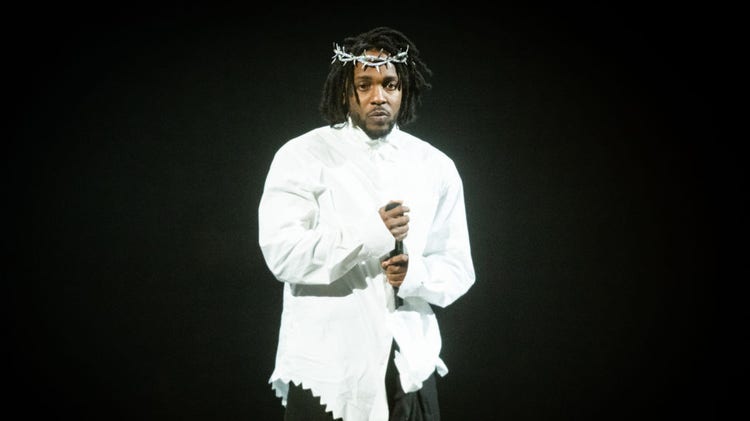
Kendrick Lamar was doing more than just working on music during his four-year hiatus from the limelight; he was evolving as an artist, father, and overall person.
The Pulitzer Prize-winning rapper gave fans insight into his complex world of thoughts when he re-emerged this past May with the release of his fourth studio album, Mr. Morale & the Big Steppers. Now, the normally reclusive rapper has opened up even more by shedding light on how fatherhood has changed him.
In 2019, Lamar and his longtime fianceé, Whitney Alford, welcomed their first child together, a daughter whose name has been withheld from the public. With the release of Mr. Morale & the Big Steppers, he revealed that he and Alford welcomed a second child. The album’s cover shows Lamar holding his daughter while Alford is seen sitting on a bed holding a baby.
In a new feature published on Oct. 11 for W Magazine, the good kid, m.A.A.d city artist said becoming a father has taught him huge life lessons on love. “A lot of times, we play with the idea and don’t necessarily know if it’s real, until you feel it,” he said.
He continued: “My children allowed me, in their development as human beings beginning to walk and talk, to remove my ego, to know that my children, too, will have their own independence. That allows me to understand the unconditional love on my end.”
Lamar noted that he knew love deeply when he realized he could watch his children freely learn about the world around them without overarching restrictions on who they should become. “And when I look at that, I try to apply it with how I express myself, how I look at my career, and how I meet other individuals. Am I allowing them to be themselves without any judgment? My children have taught me that,” he added.
The Grammy winner also said his children helped him overcome his doubts about releasing his latest musical offering.
“When I got to completion and I said, ‘I may or may not put this out; I’m not going to put this out; it’s way too much,’ I thought about my children,” Lamar explained. “I thought about when they turn 21, or they’re older in life, and when I got grandchildren, or if I’m long gone—this can be a prerequisite of how to cope. That’s the beauty of it for me.”